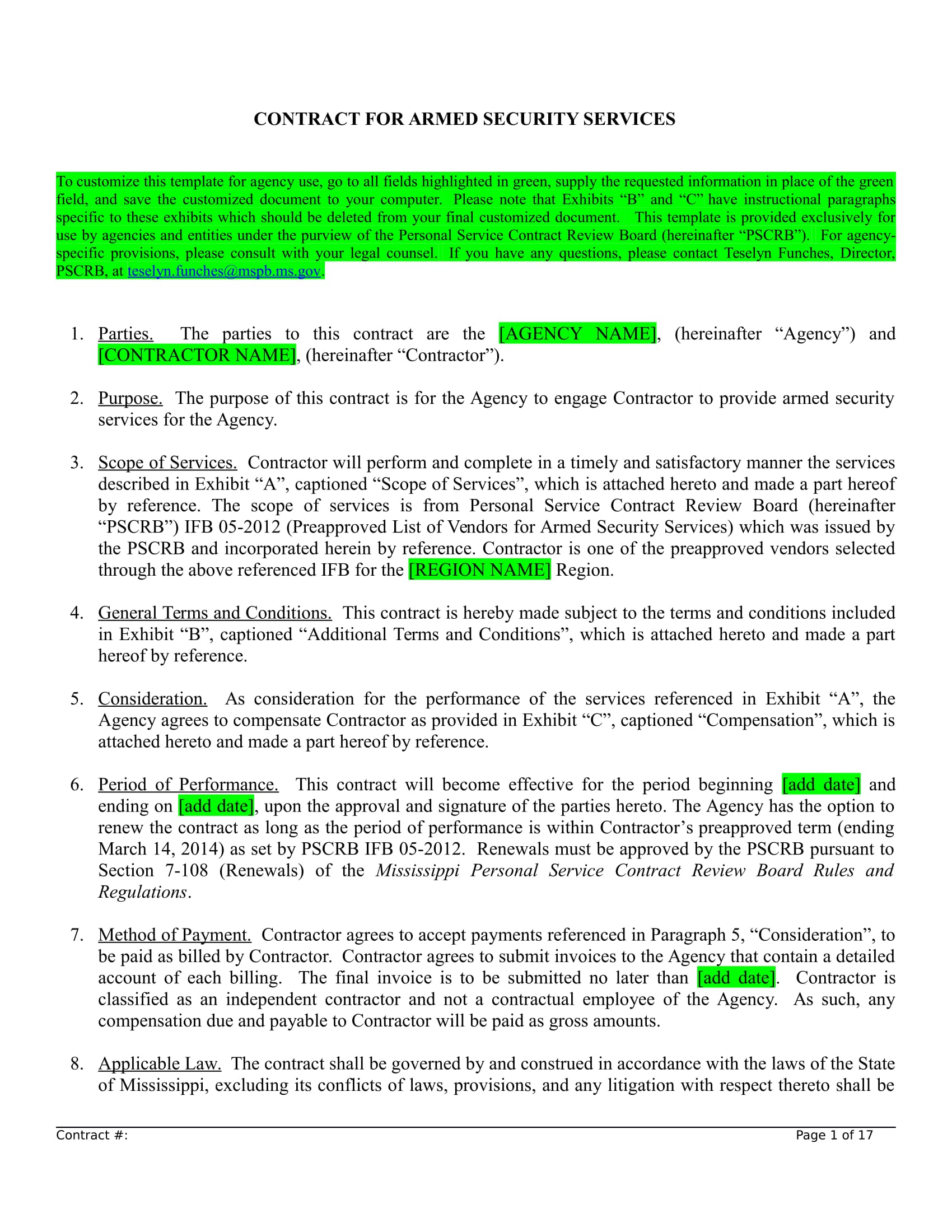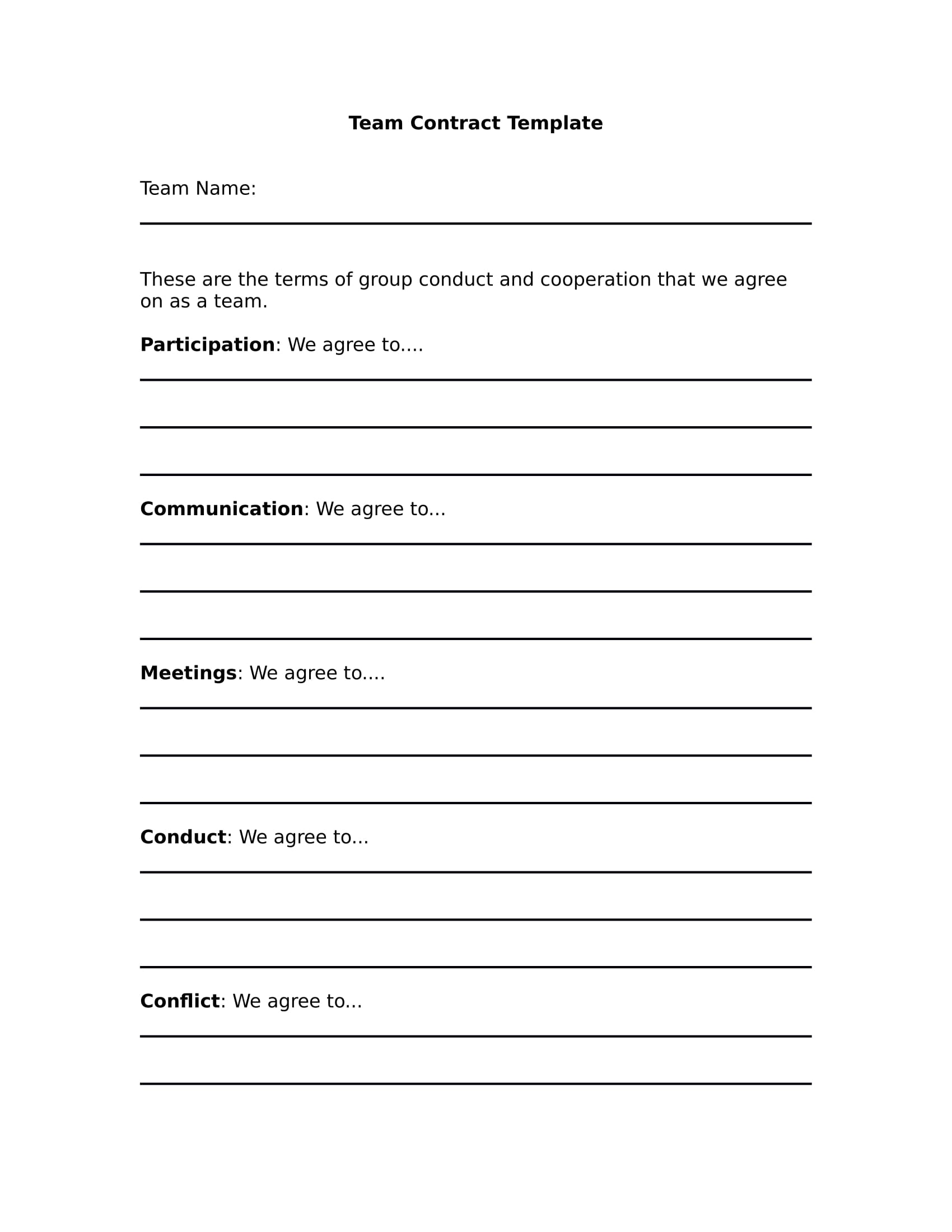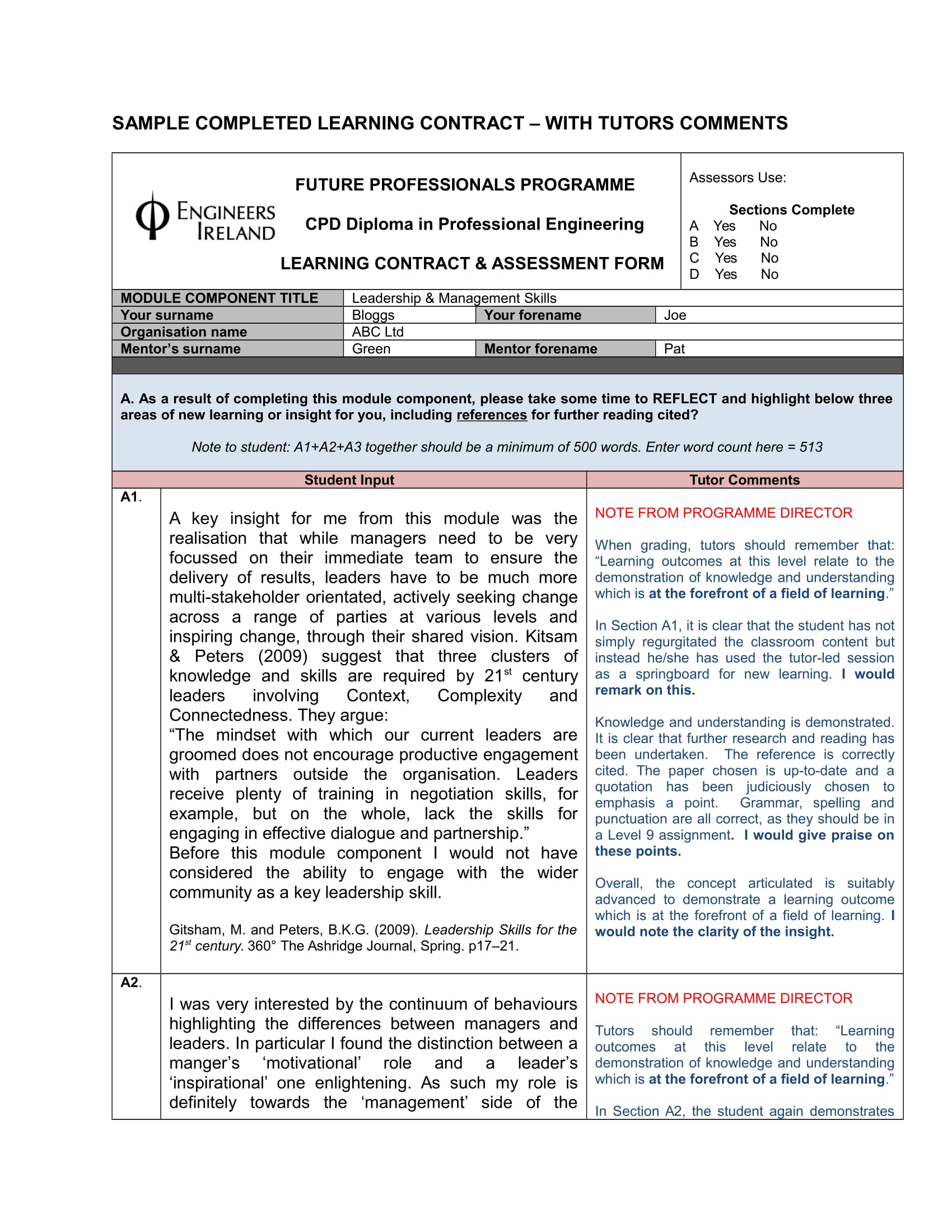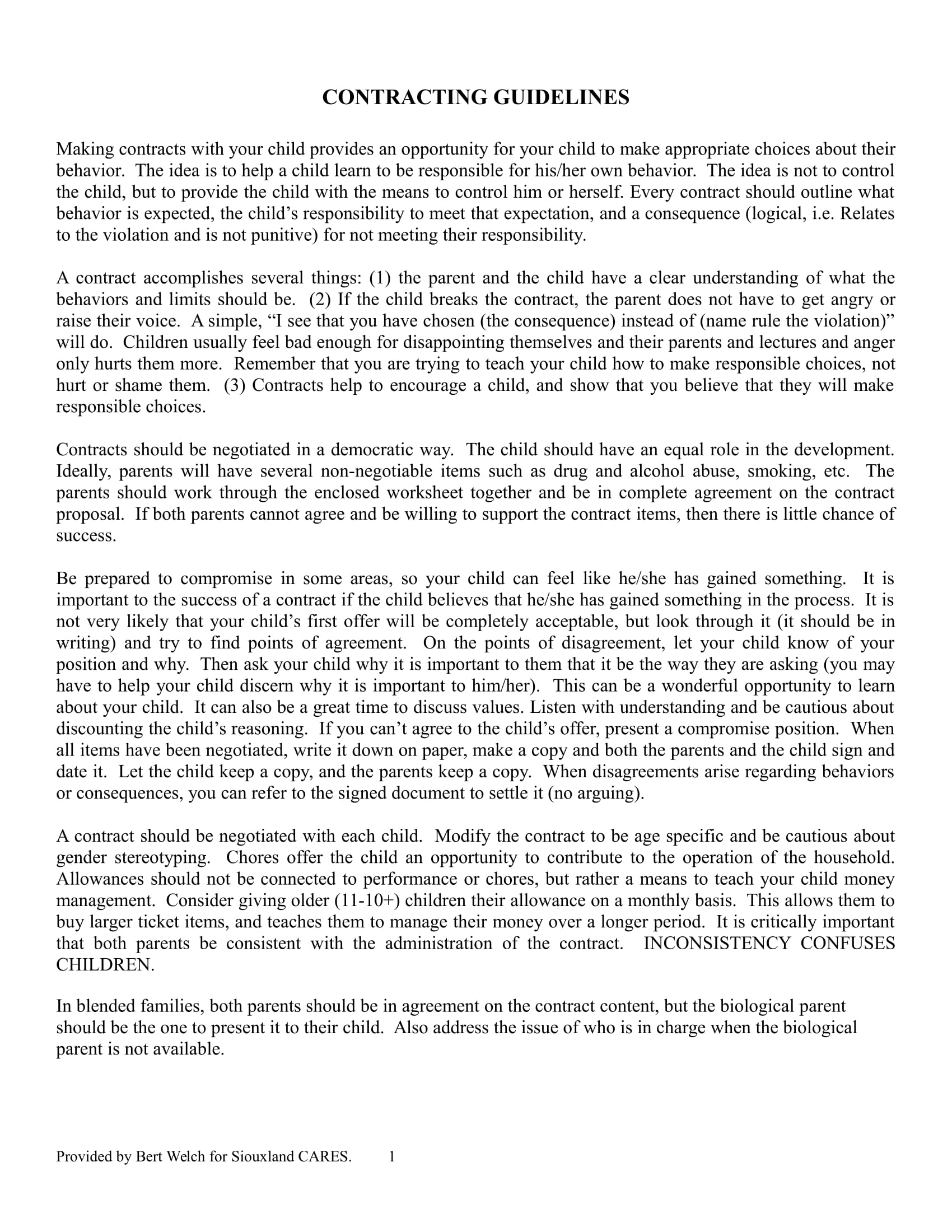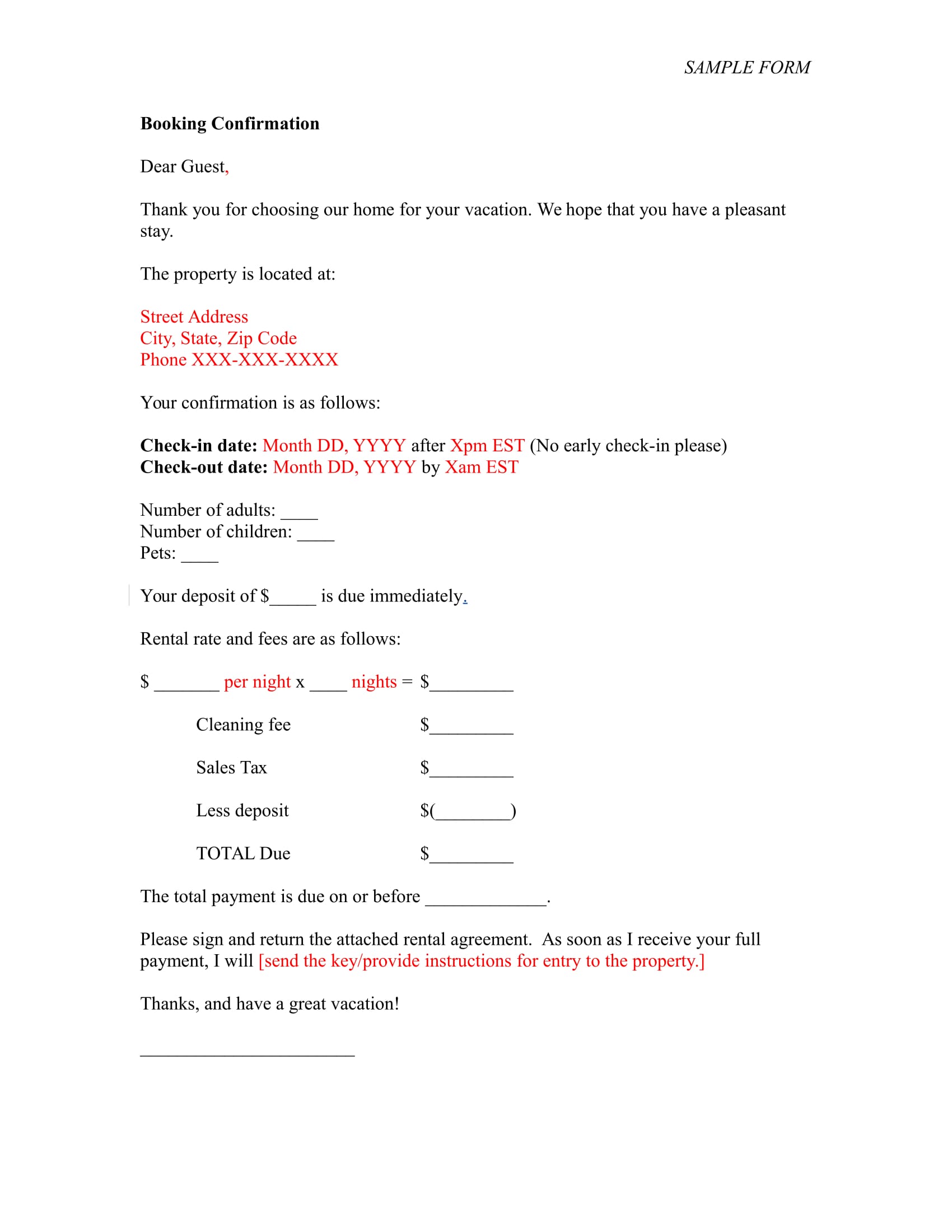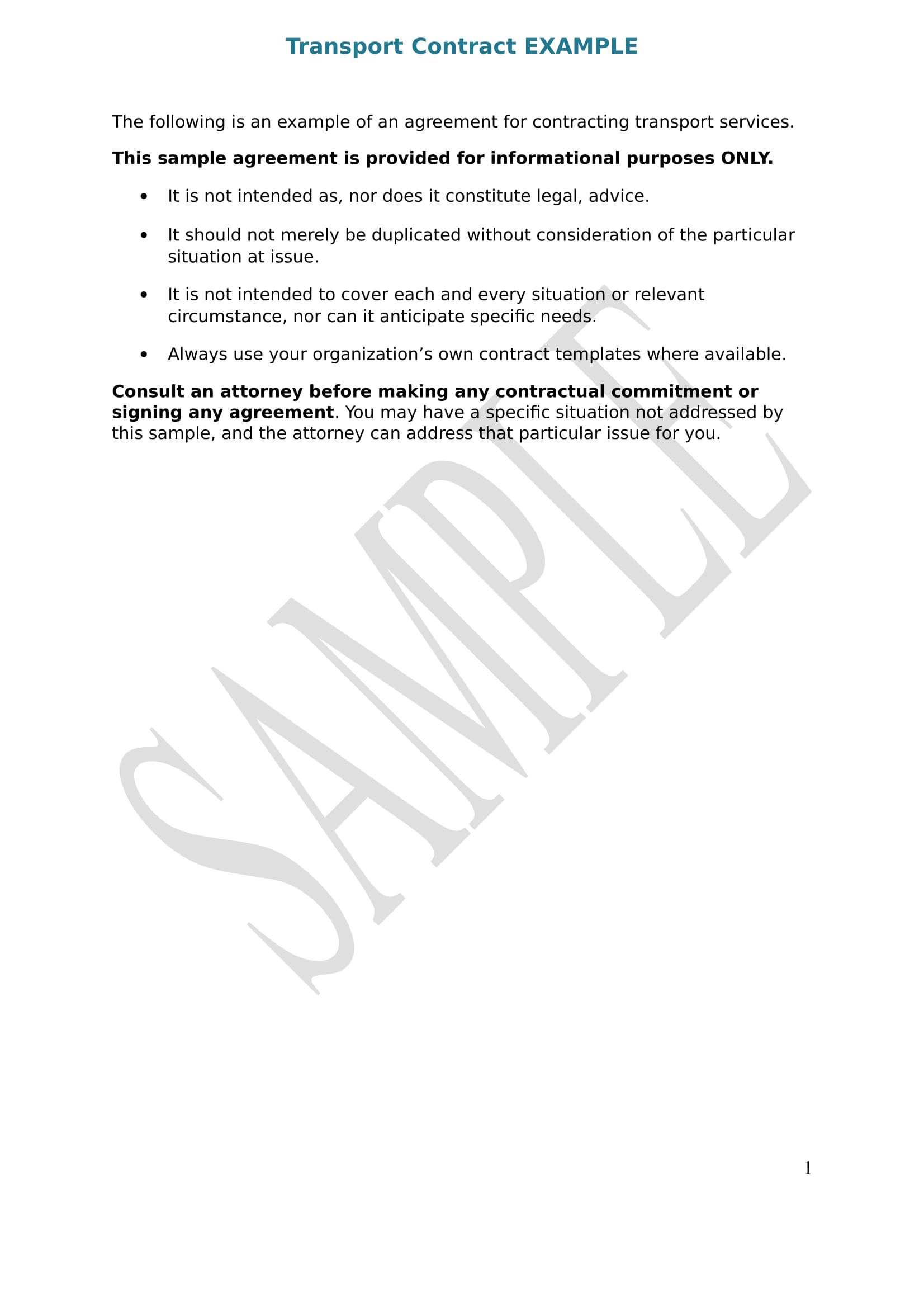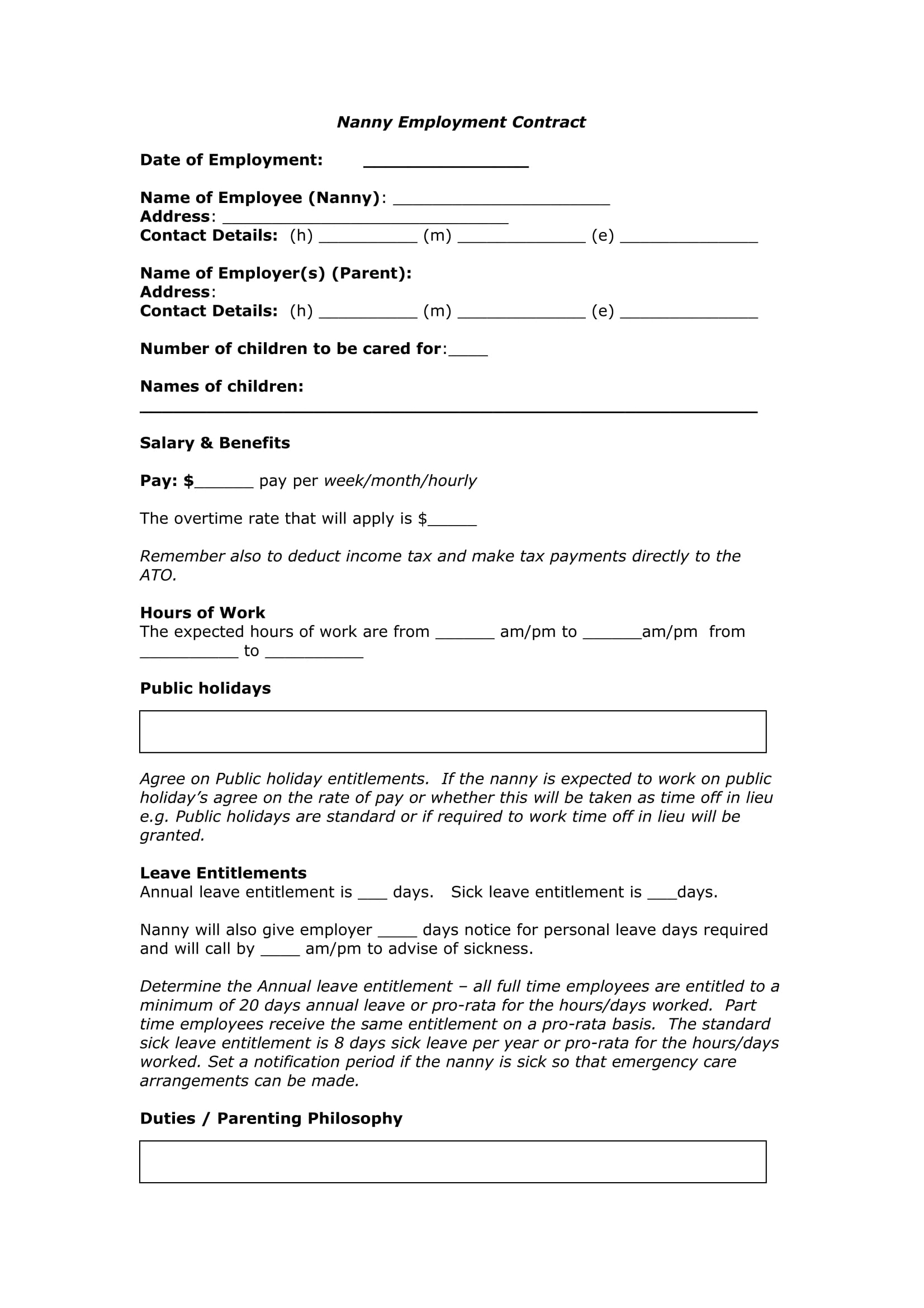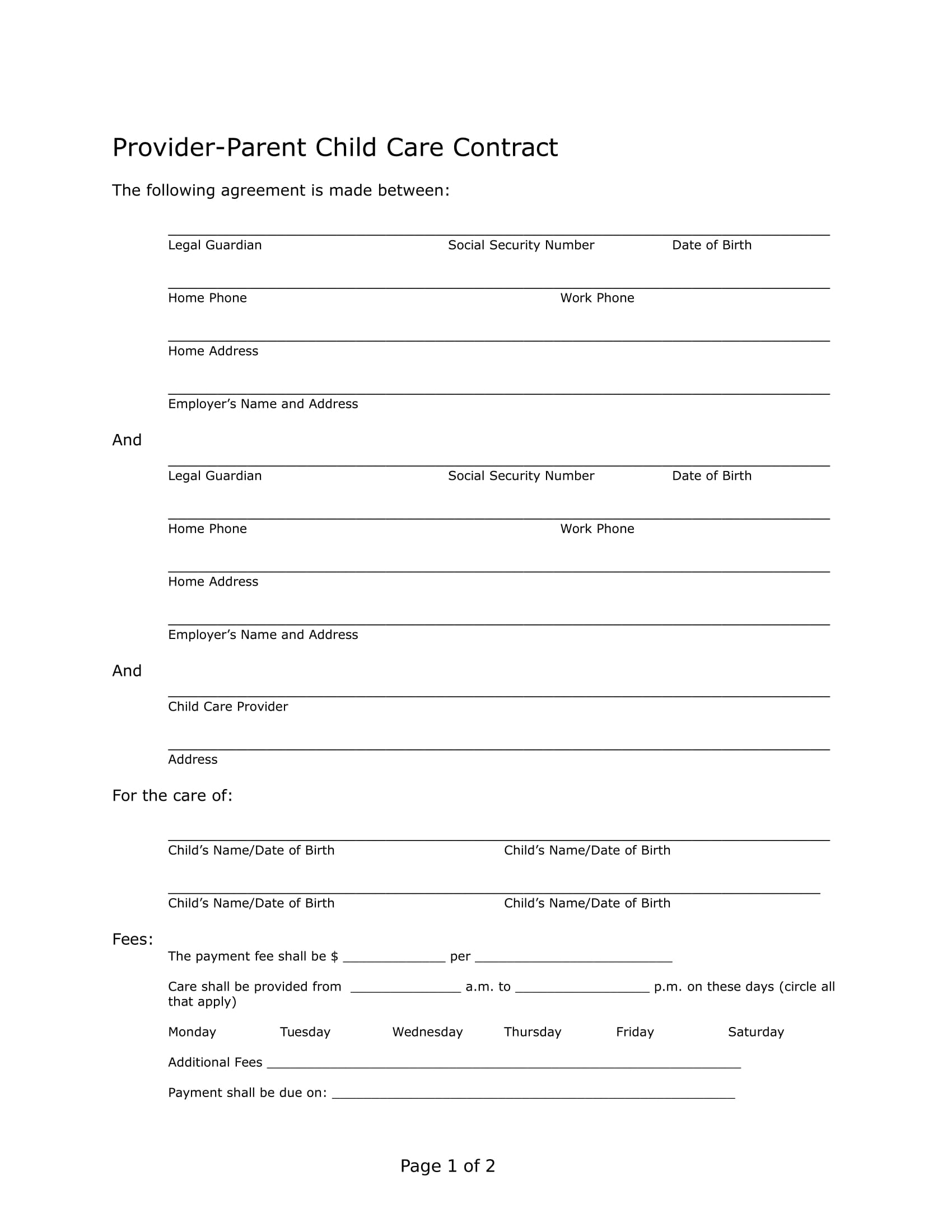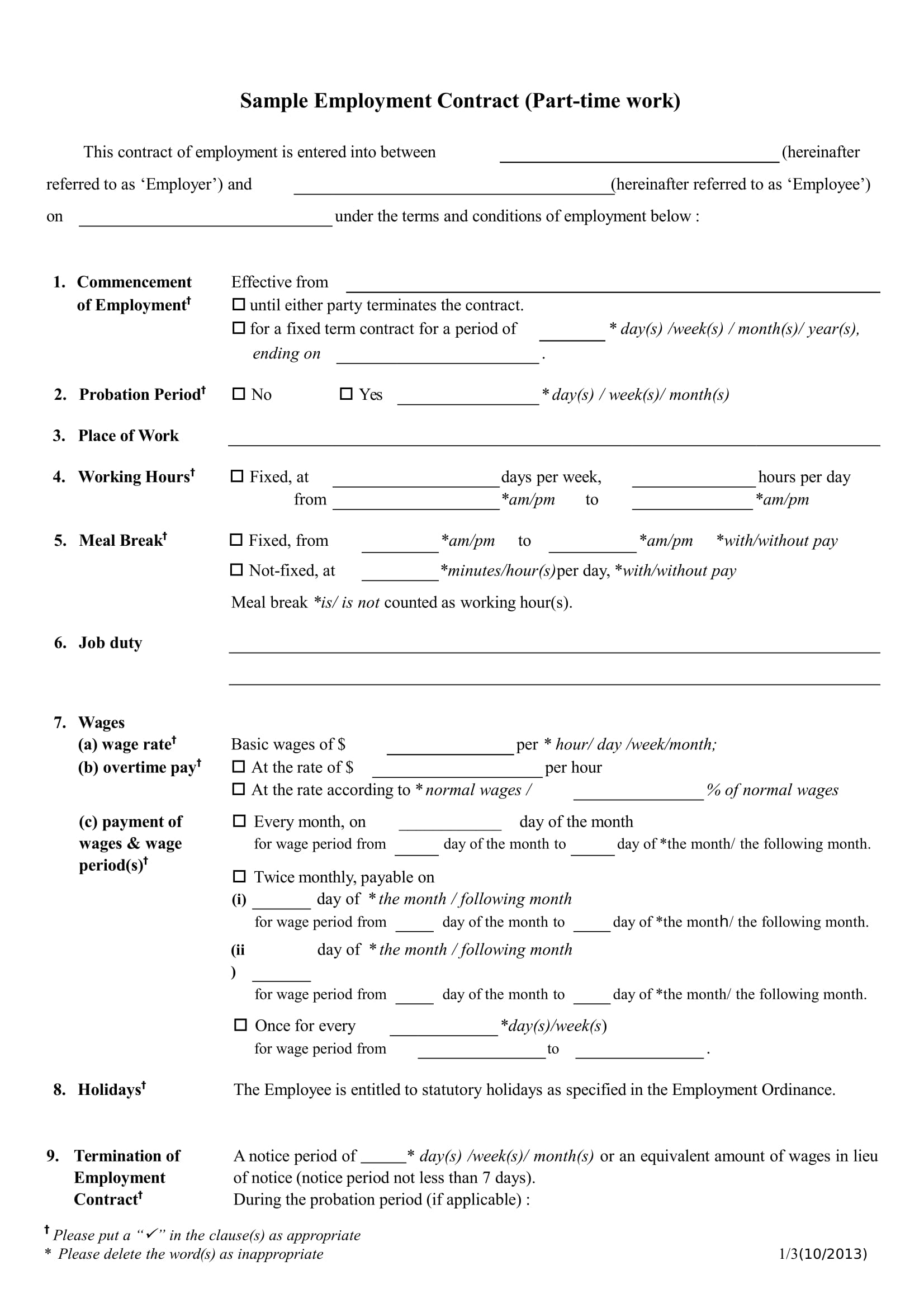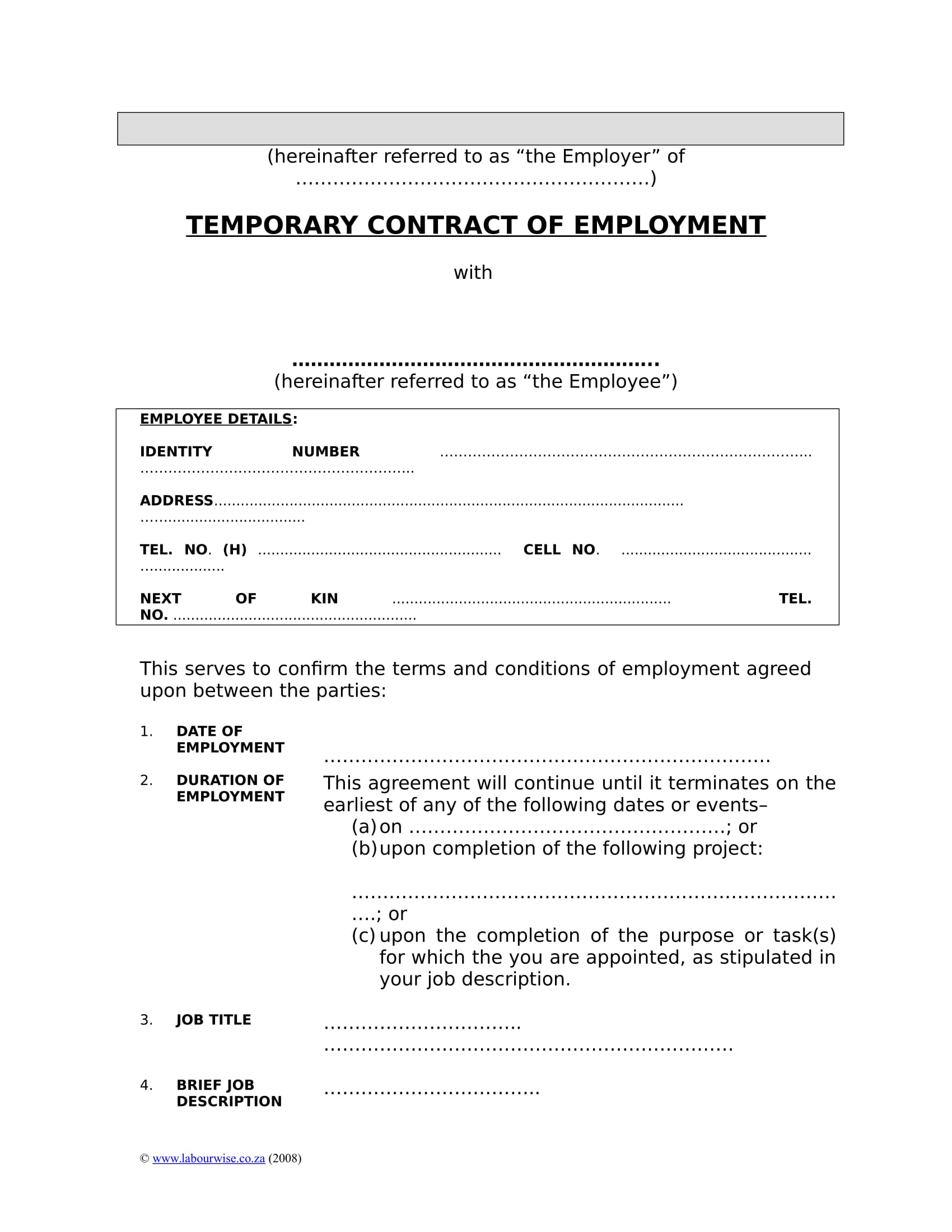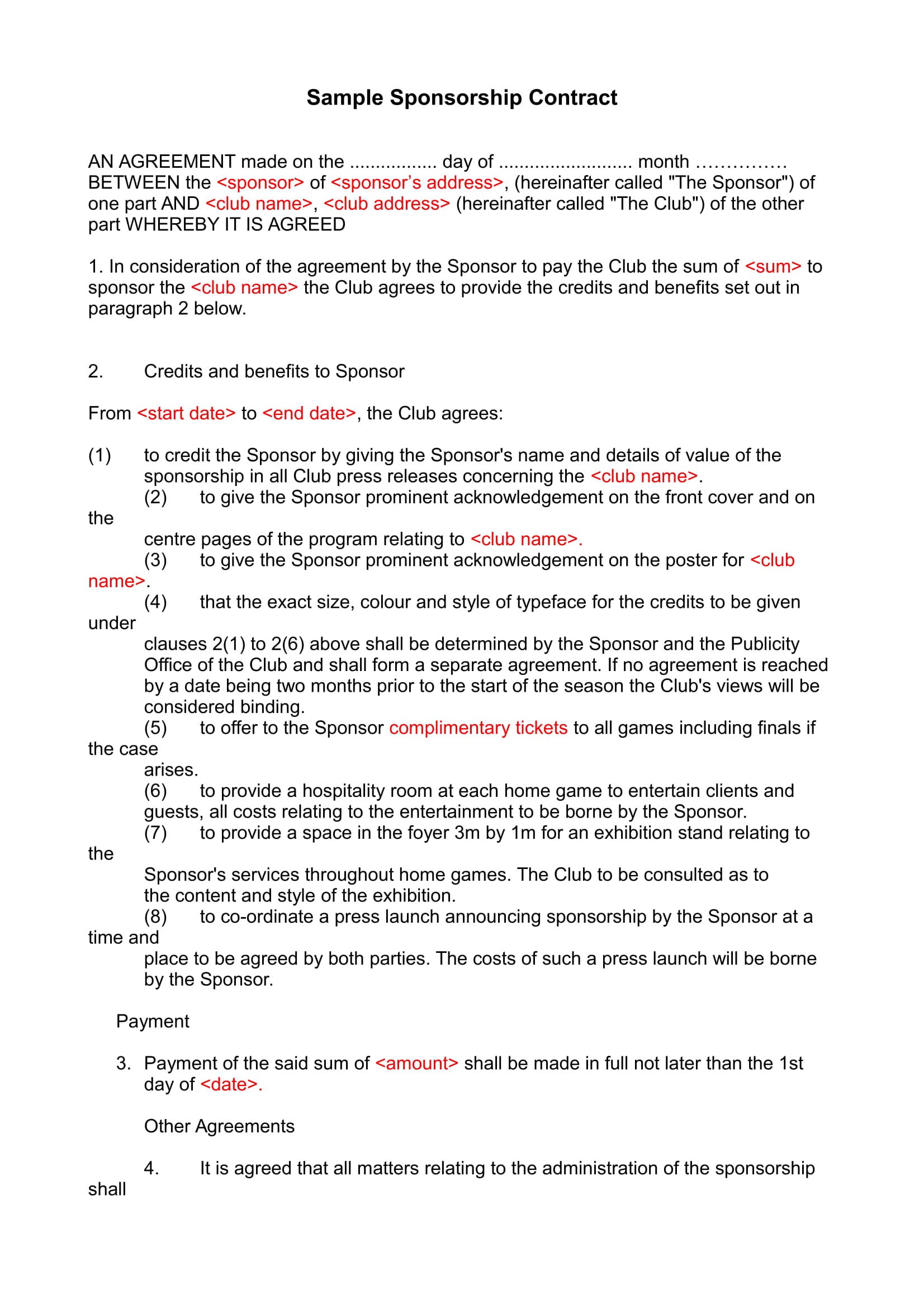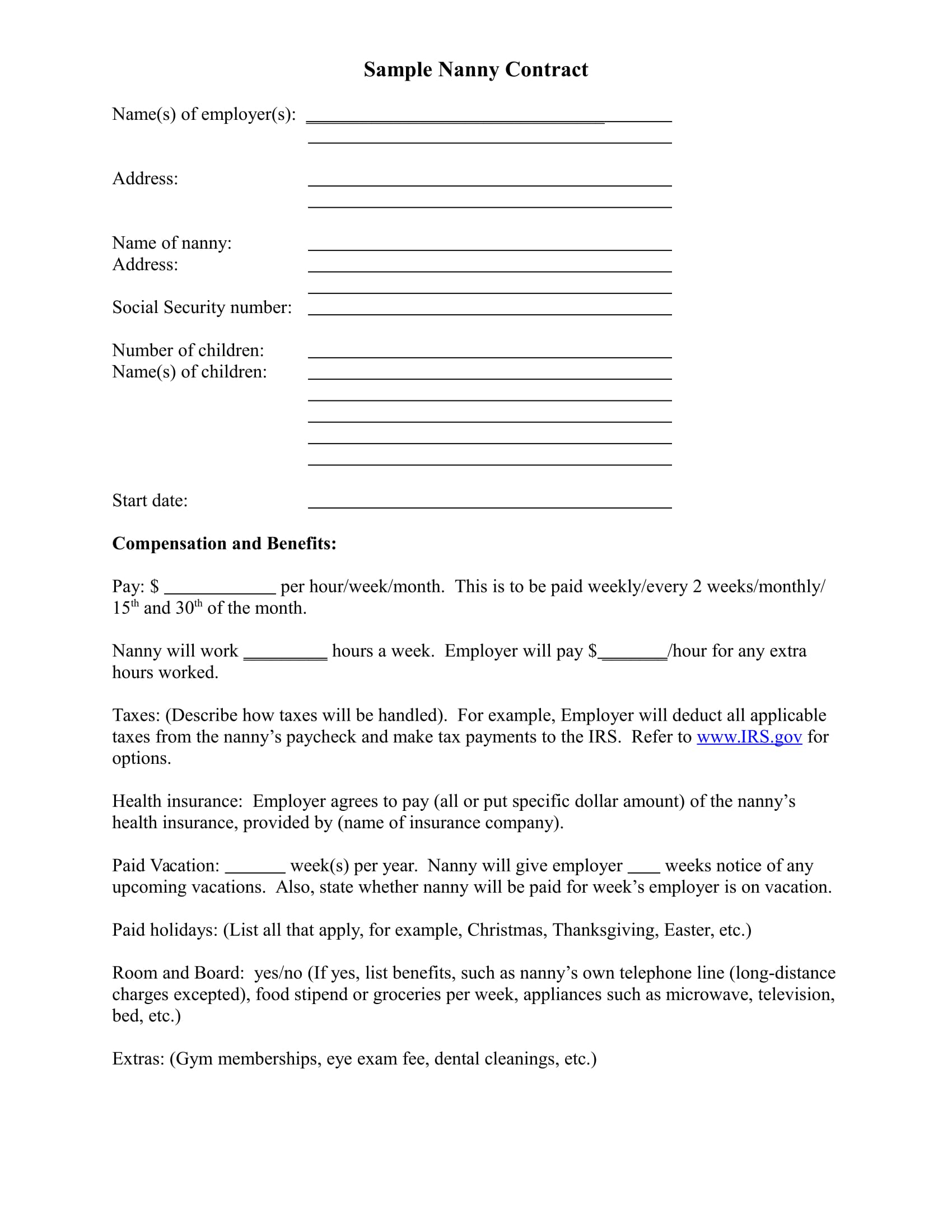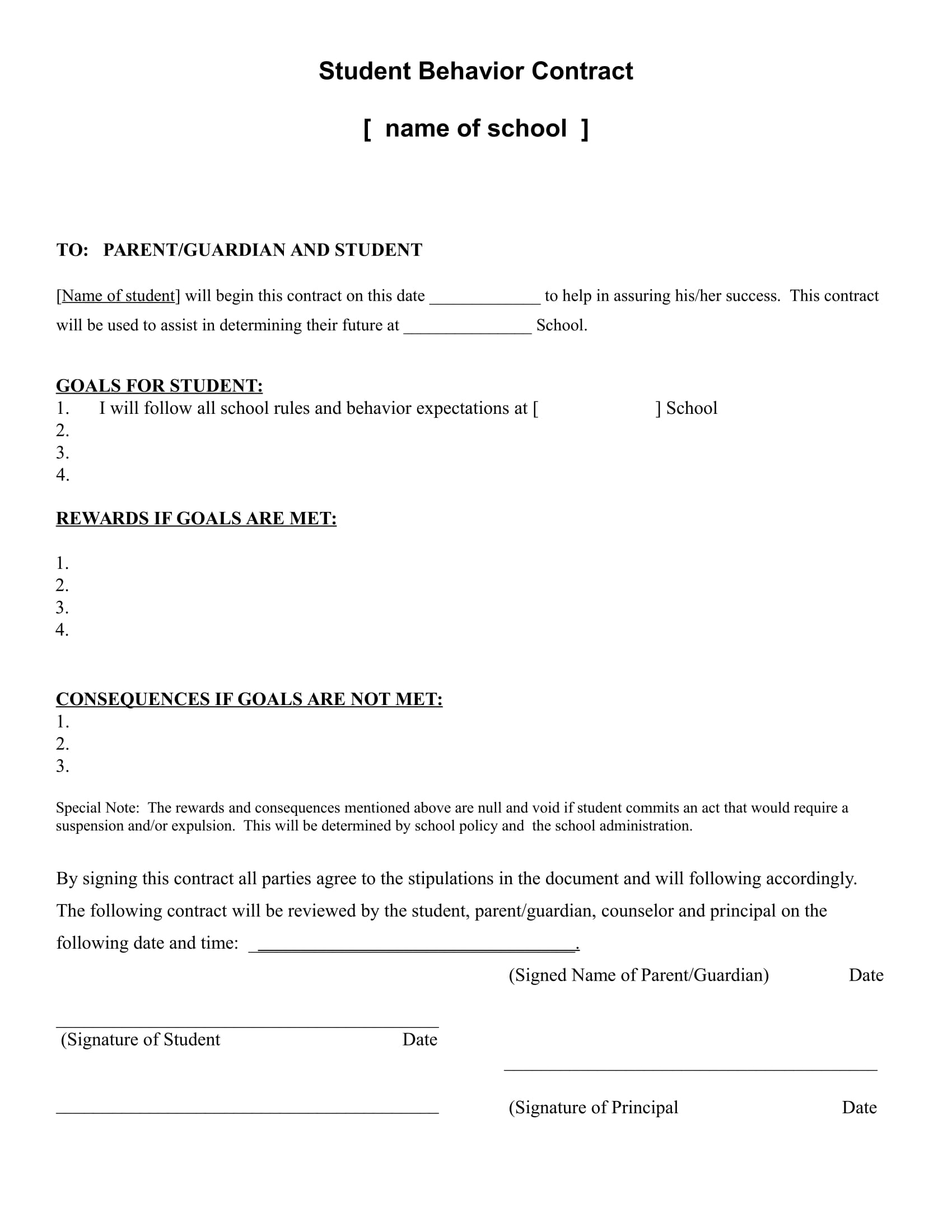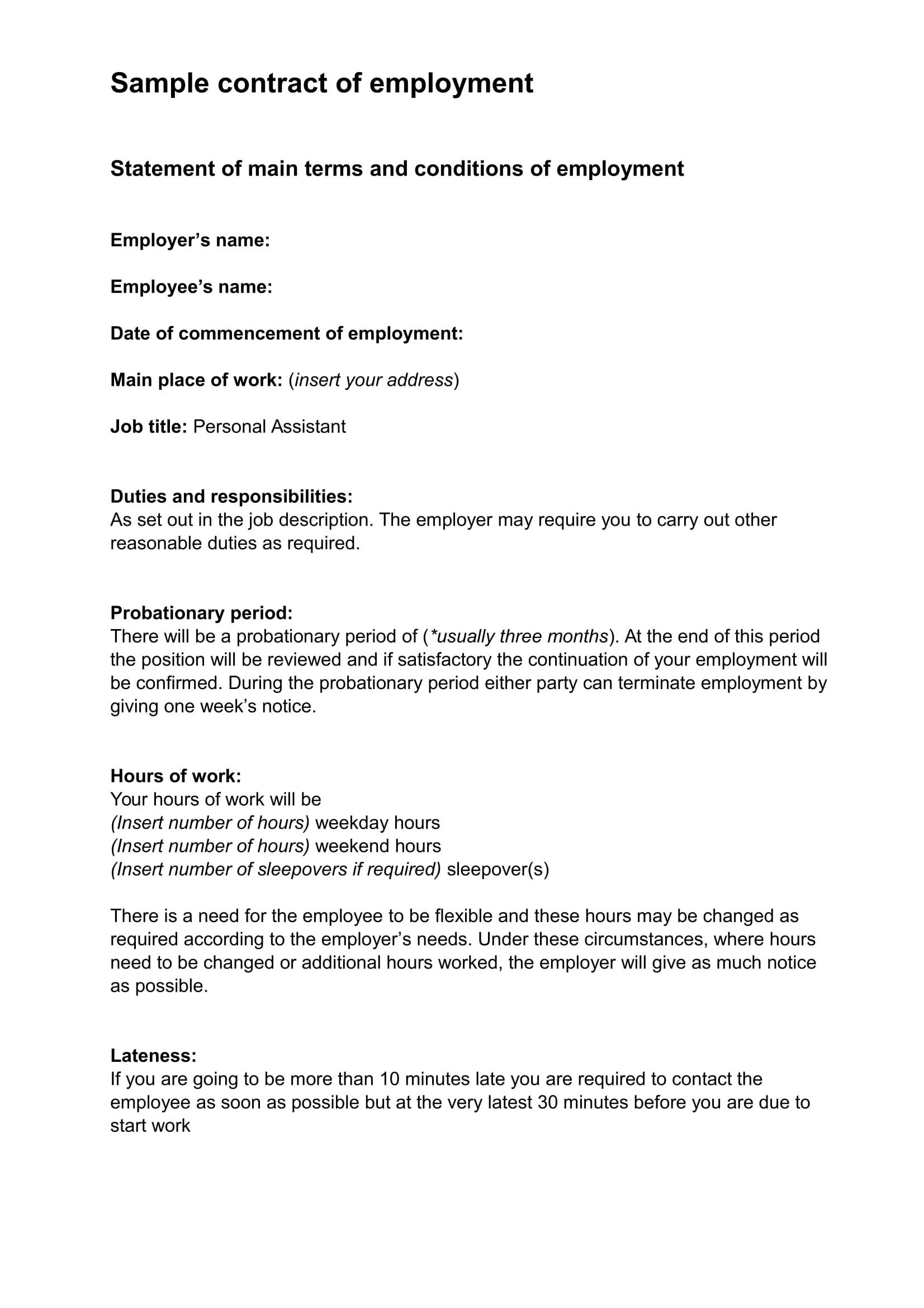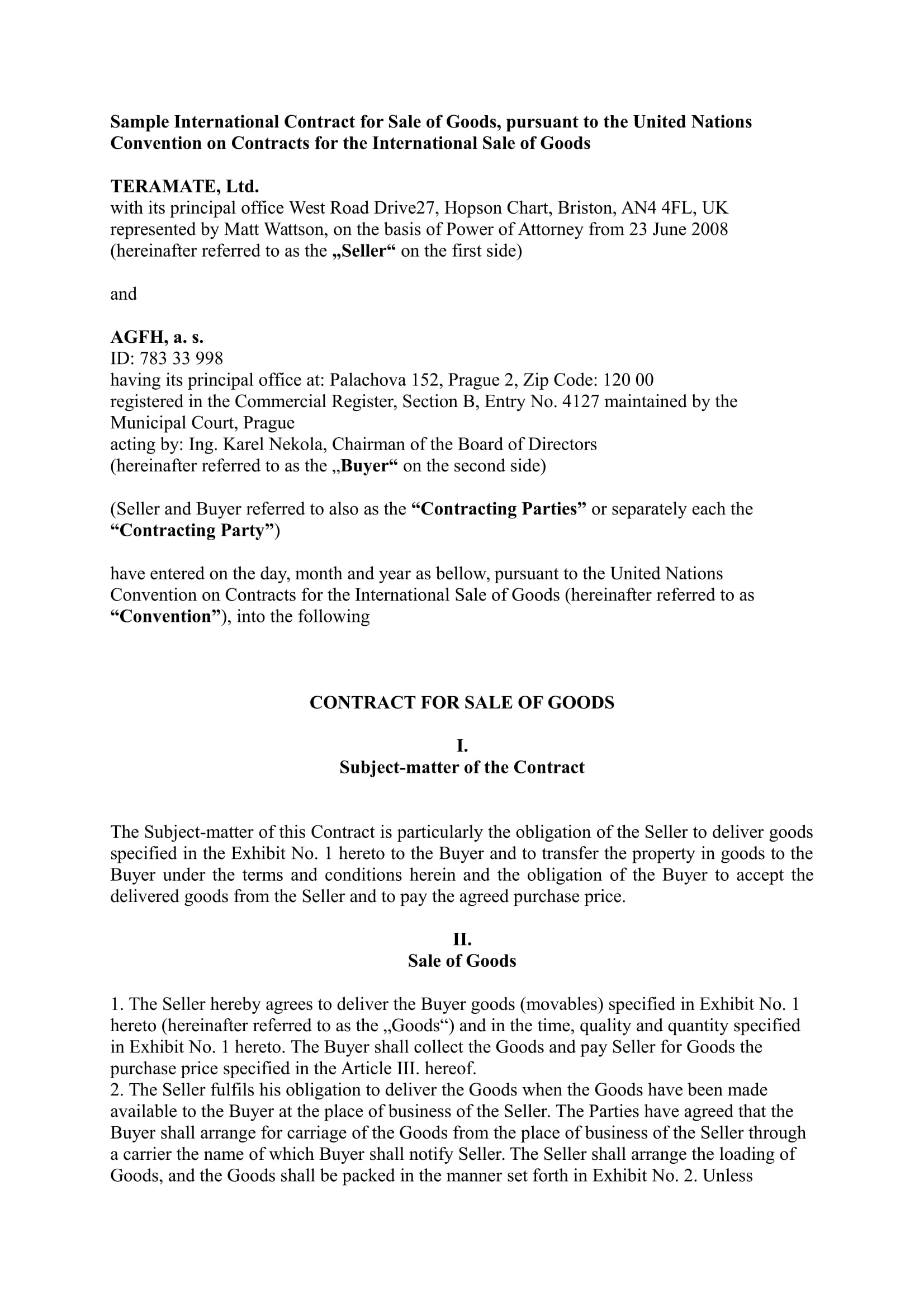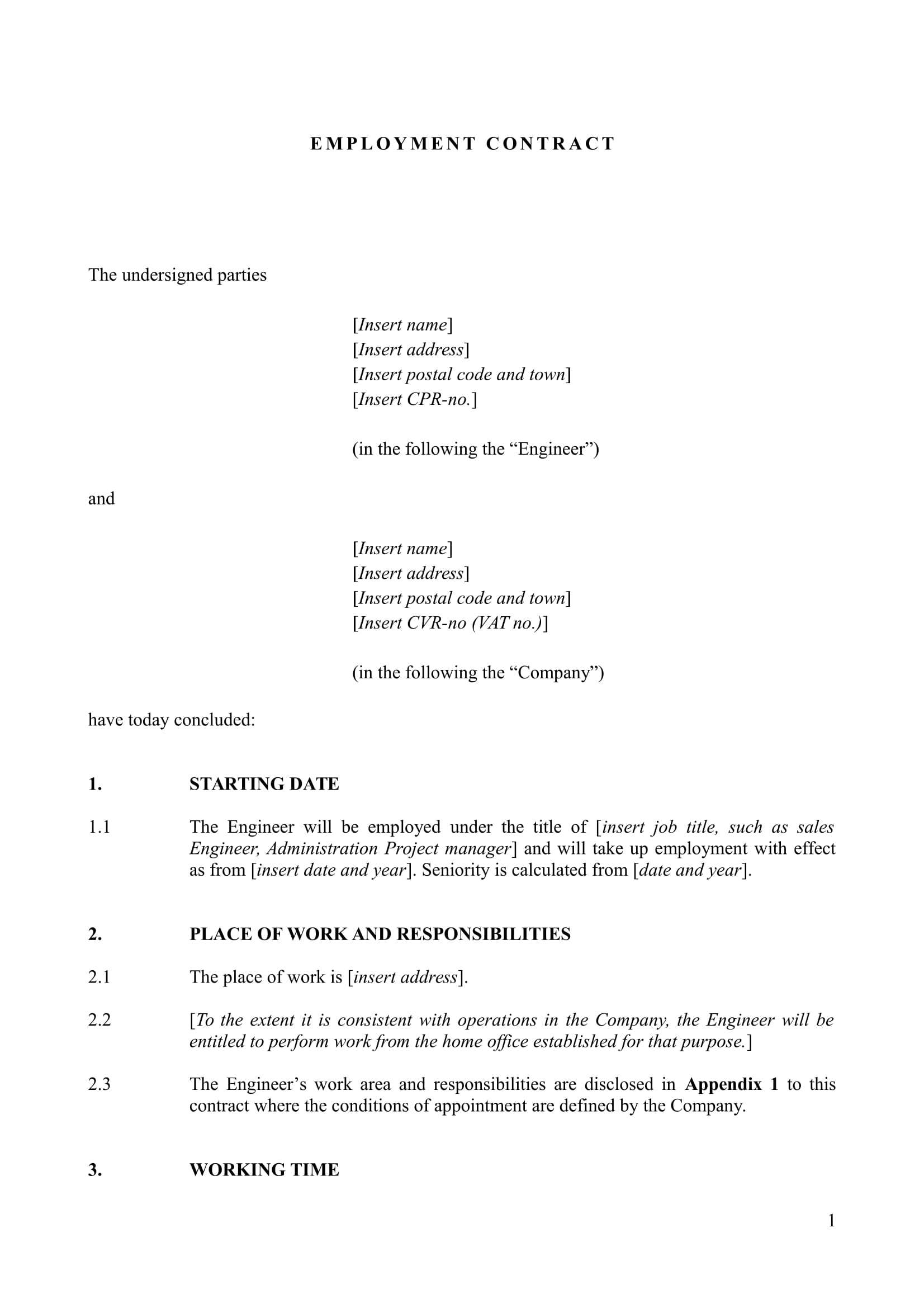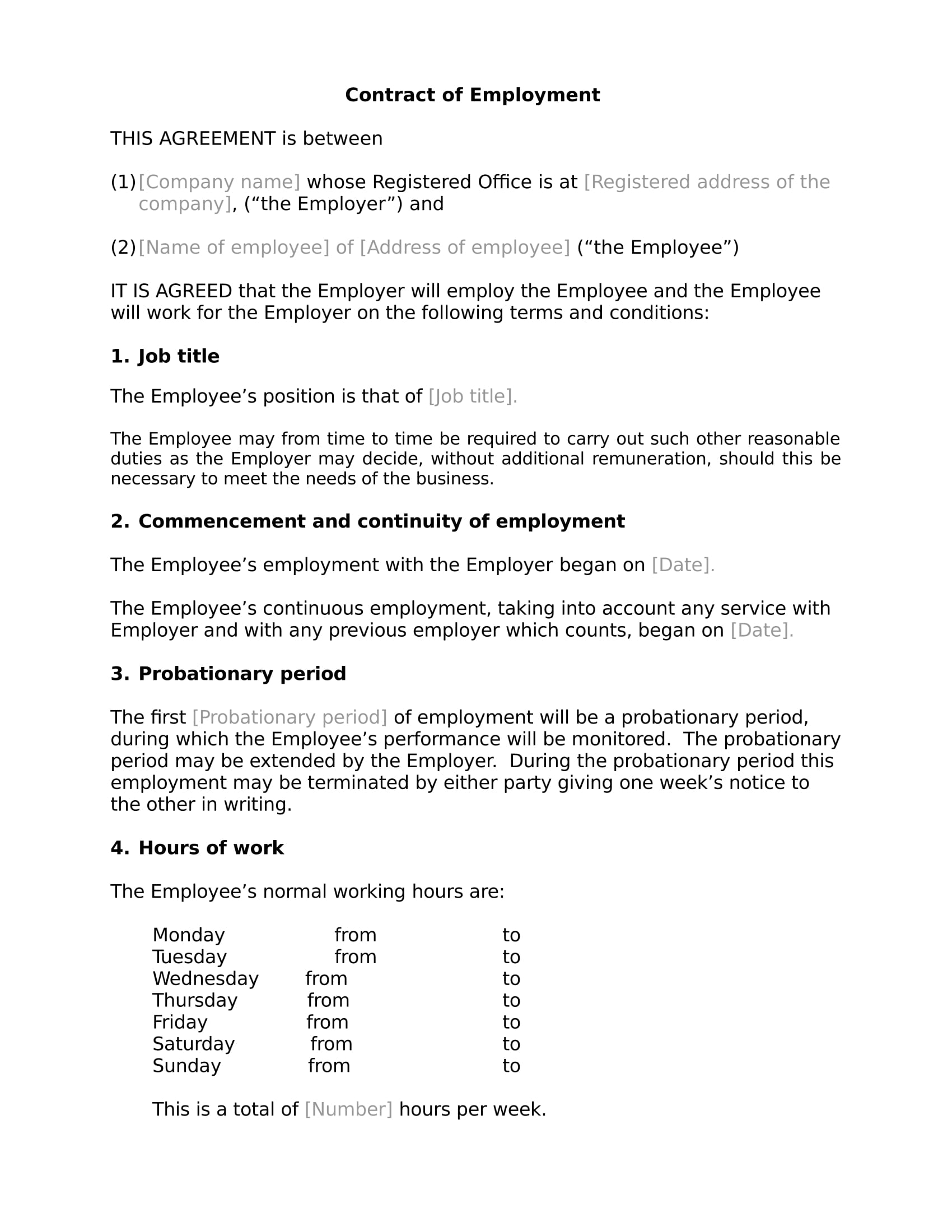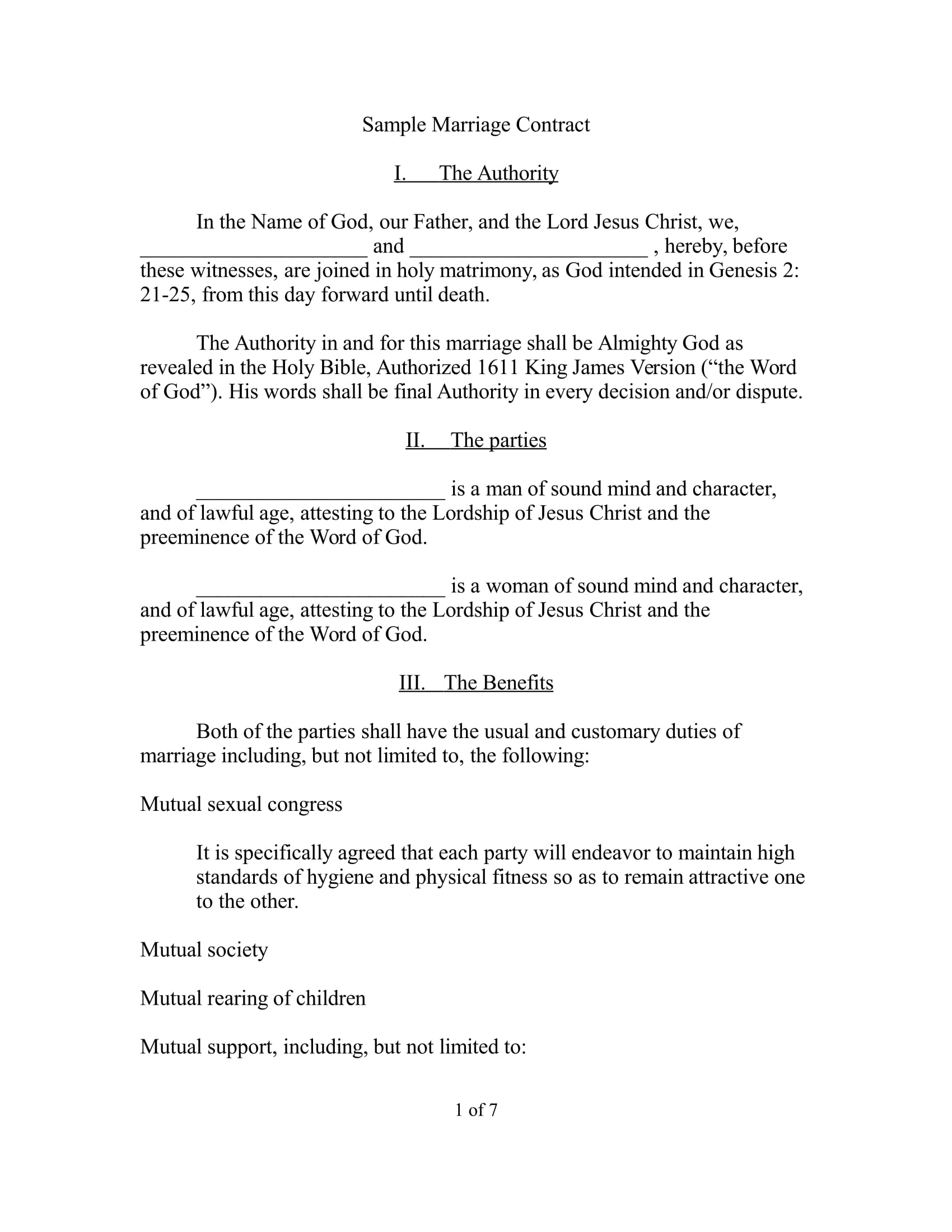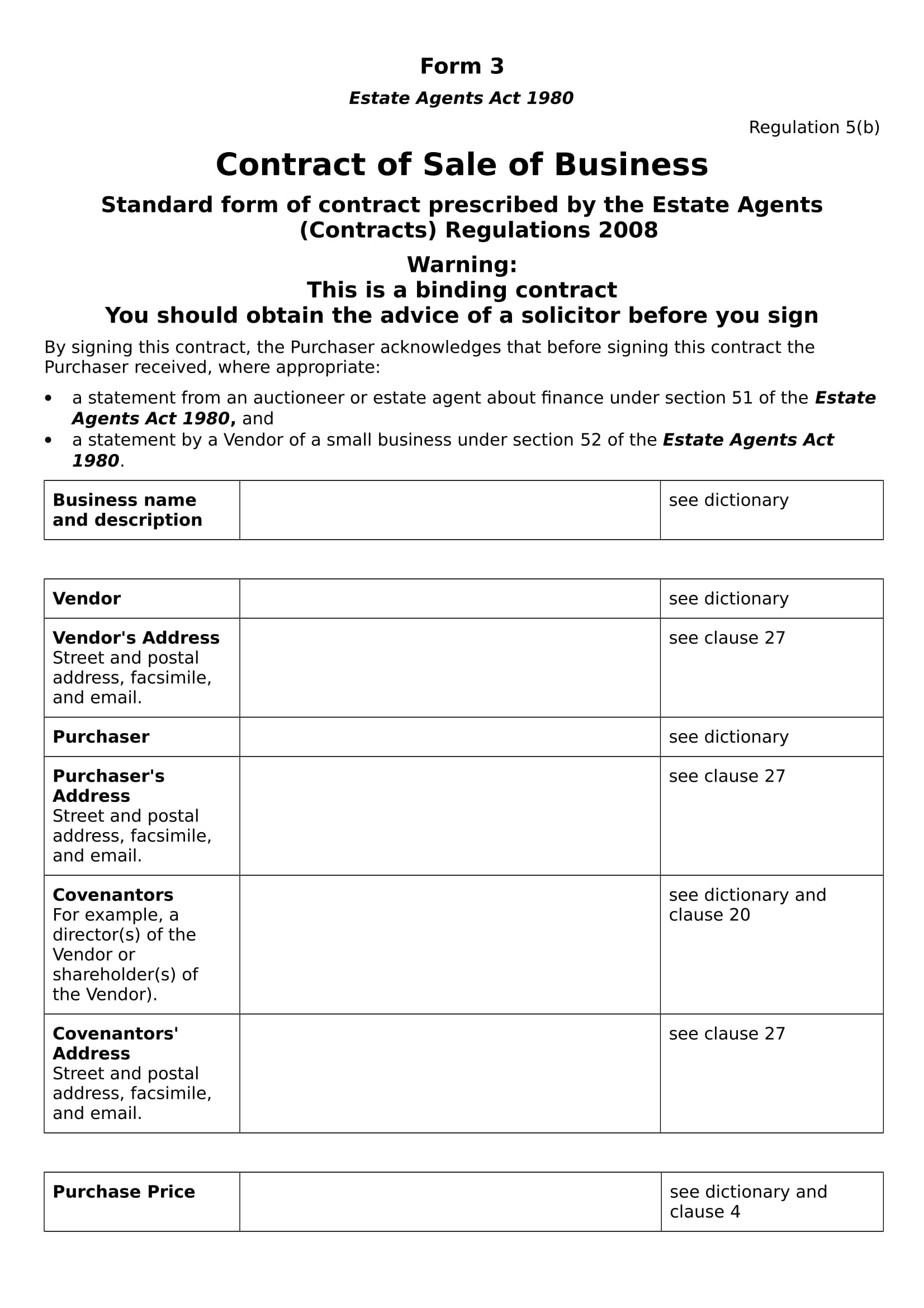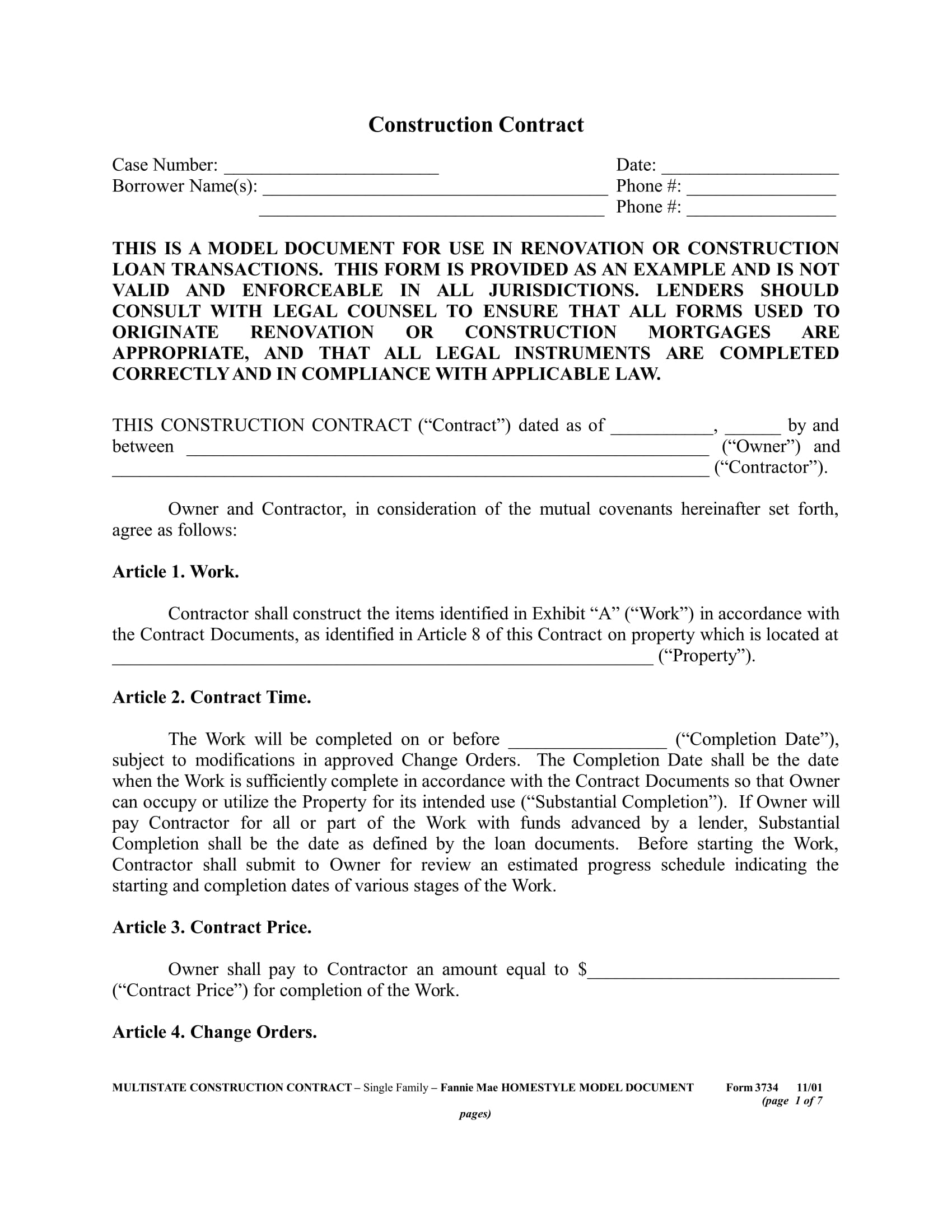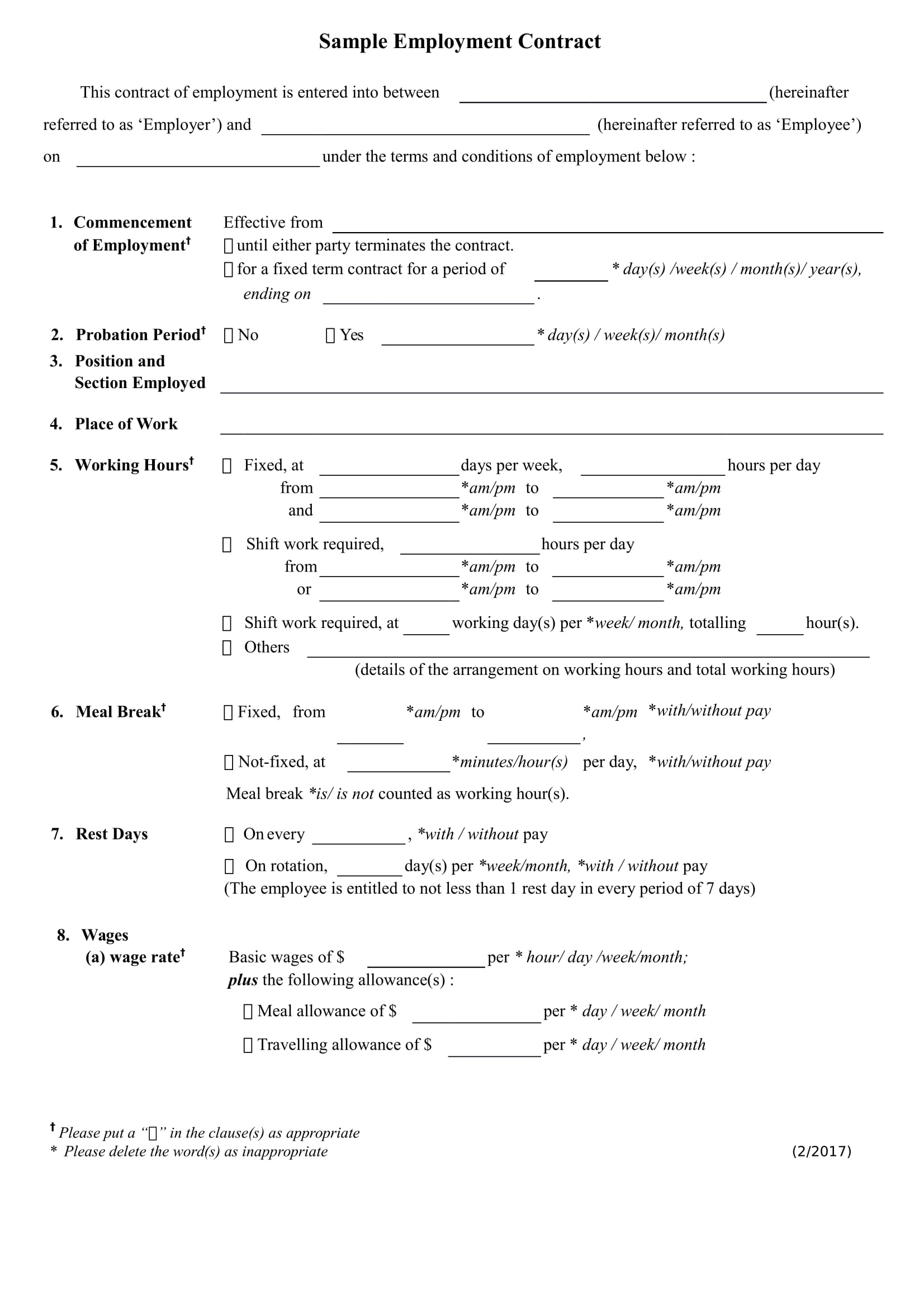24+ Contract Examples to Download
Written contracts are essential to be a part of every agreement as it can ensure the protection of the rights and intentions of each entities. This document can also provide a clear presentation of the responsibilities of each party to one another within the validity of the contract. To simplify the drafting process, many professionals rely on a contract maker for quick customization, while contract templates offer structured formats that reduce errors and save time. We have listed several contract examples that you can refer to. Browse through these downloadable examples so you can have an easier and faster time when dealing with the planning, development and execution phases of contract creation.
Business Contract Template
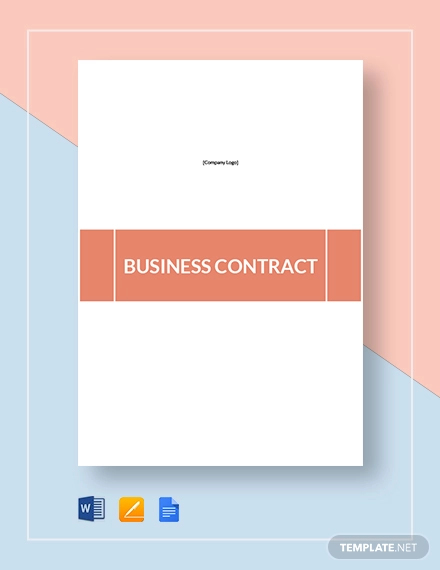
Do you need a Residential Contract Examples template but don’t have time to create one for yourself? Then, checkout this template now because this template will help you create the terms and conditions that you want to include in your contract between you and your seller in an efficient way. Buy and download this template now!
Coaching Contract Template
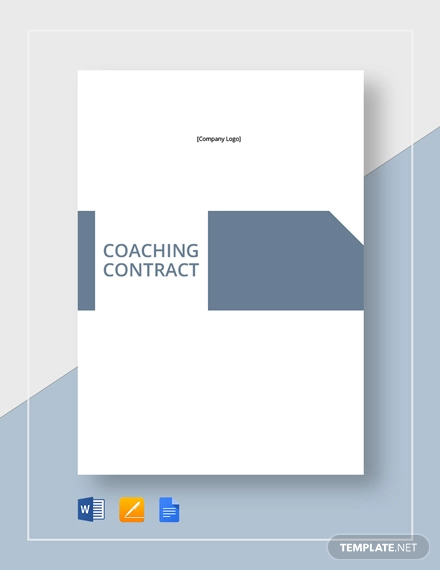
Business Loan Contract Template

Catering Contract Agreement Template
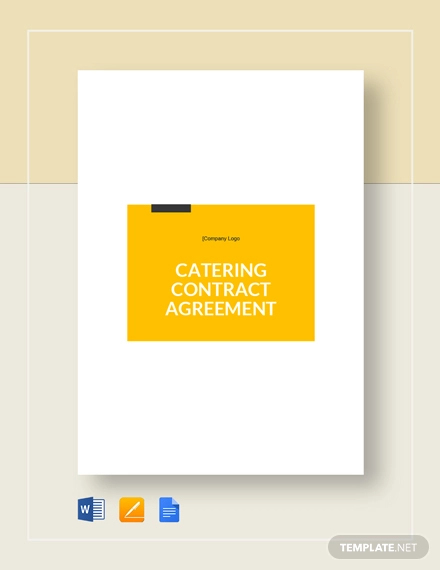
Contract for Armed Security Services Example
Team Contract Template Example
Contracts as Business Tools
Businesses create contracts for them to maximize their benefits from a particular transaction without abusing the rights that are entitled to the parties that they are working with. Hence, having a contract promotes balance within a transaction. As efficient business tools, contracts can help businesses to make these items be realized:
1. Discussion about the terms, conditions and limitations of any transaction can be created and presented with clarity and transparency. Well-formulated contracts can serve as an effective legal document which is the reason why clauses and statements must be well thought of and carefully curated. The completion of all the details needed to perfectly present the transaction where the general contract will be used can help all entities provide their trust to one another.
2. Contracts can set proper expectations between all the parties that are involved in the simple agreement. If a comprehensive contract will be made prior to the start of the transaction, then entities can already identify the call to actions that they are tasked to execute as well as the returns that they can receive by doing so. This helps develop a thorough understanding of how the entire transaction will go. Processes of contract execution must be clearly specified so that the final document can guide all entities in all the paces of the transaction.
3. From employment contract examples to band contract examples, contracts in general can help resolve negative instances like disputes and court trials that may occur in the future. Since contracts are enforceable in court law, you always have to remember that the terms within the contract are legally binding. If a document can provide specific situational guidelines like termination clauses, then it will be easier to address issues and misunderstandings.
4. Contracts are great business tools as they ensure the security of business resources. Proper allocation, usage, and exchange of resources within a transaction can be laid out within a contract. With this, the perception of how contracts can work for the benefit and advantage of the business can be realized and well-executed.
Completed Learning Contract Example
Parent or Child Contract Example
Rental Rules or Contract Example
Benefits of a Well-Written Contract
Making a contract must not be overlooked and disregarded. Even if you feel safe and secured with the parties that you will be transacting with, it is still important for you to have a written agreement that can formally present the details of the transaction that you have agreed upon. Contract examples can legally protect you from any unexpected circumstances that might happen. Aside from that, here are some of the benefits that a well-written contract can provide:
1. With a comprehensive contract, you can already allocate the cost of the resources that is expected by the clients within a particular time frame. Businesses who can make clients or customers sign a contract can already prepare the acquisition of resources which can help them veer away from spending more due to potential increase of the resources’ costs. Economic trends can affect resource costs which is why a contract should already be made for businesses to prepare costing that is aligned with the value which they expect to get while developing the contract. You may also see employment contract examples.
2. Through a defined and accurate contract, strategic and healthy business relationships can be established. There are particular contracts that are made to ensure that non-compete agreements will be honored. This can help lasting transactions be sustained which can benefit all the stakeholders that can be affected by the content of the contract and its execution. You may also like videography contract examples in pdf.
3. Limitations can be precisely and professionally set if a contract will be present. It is not enough for the contract to present the scope of the transaction. It should also serve as a formal document that can limit the responsibilities and obligations of each party. Minimum expectations must be set to make sure that additional requests, when approved by all parties, can be charged and documented accordingly. You may also check out key differences between unilateral and bilateral contracts.
Transport Contract Example
Nanny Employment Contract Example
New Contract Example
Relevance of Contract Management in Contract Planning, Creation and Development
Contract management can help businesses reduce the risks that they need to take, especially financially, when entering a transaction or an agreement. Contract management allows companies and other entities to ensure that the processes of contract planning and development can result to an effective final contract that, once used or executed, can objectively provide benefits to all parties. Listed below are the other reasons why it is important for you to implement contract management when making and using a contract.
1. Contract management can showcase the flow of the transaction. Projects, business processes, and other agreements where a contract will be used need a well-guided work flow to follow. Managing the development and usage of contracts can make an organized transaction be possible.
2. Contract management can ensure that all parties are well-aware of the monitoring of the contract implementation. Always keep in mind that contracts do not necessarily end when the expected services have already been provided. There are still clauses and agreement terms that must be considered to ensure that all obligations, even after the minimum responsibilities have been executed, will be provided. Looking into these details can help you eliminate the chances of additional fines or even litigation. You may also see key differences between agreements and contracts.
3. Contract management can help parties align their strategies, rights and obligations within the procedures that should be followed once the contract has already been approved and signed by all parties. This can maximize the usage of each parties’ efforts especially in terms of ensuring that the duration of the contract validity can provide successes to the involved entities.
4. May it be for DJ contracts, catering contracts or any other kinds of contracts; contract management can promote great compliance. Since all items that are essential to be included in a contract are considered and listed, like terms and modes of payment, then it will be more efficient for parties to know their responsibilities and how they should execute these in a timely manner. Hence, potential risks can be lessened when it comes to not being able to deliver.
Part-time Employment Contract Example
Temporary Contract of Employment Example
Sponsorship Contract Example
Why Do You Need a Contract?
From videography contracts to examples of employment contracts, various contracts can be created for different transactions, purposes and reasons. One thing to remember when transacting with other entities is that a contract should not scare you.
Much as errors in legal terminologies and statements can sound too daunting, it can also be scary if you will not be protected within the transaction. This is the reason why professionals like lawyers should review the contract that you will make. With the help of legal advice, knowledge about contract development, and referencing examples; creating a contract should already come easy for you. A few reasons why you need a contract are as follows:
1. A contract can help you and the entities that you transact with have a clear understanding of what you would like to get from the agreement and what you can provide and deliver for them. This allows the scope of the transaction to be regulated accordingly. You may also see the truth behind service contract checklists.
2. A contract can make the entire transaction legally binding. Hence, all the information presented in the document is enforceable. This can help you manage all the risks along the way as well as the claims of misunderstandings or presence of misleading agreement information.
3. A contract can specifically identify the different types and kinds of rights that must be considered within the transaction. There are rights that have been acquired or purchased but there are also rights that you should retain depending on the kind of agreement that you have immersed in. This will help you focus not only on your obligations but also the items and things that you should be entitled with. You may also like dj contract examples.
Nanny Contract Example
Student Behavior Contract Example
Simple Contract of Employment Example
How to Make a Contract Work Efficiently and Effectively
If you are planning to create a contract, you should make sure that you are well-prepared even before starting the draft of the document. You always have to think of how the contract can affect the potential success of the transaction. Even if developing an efficient contract can be tedious and labor-intensive, what you need to look into is the end result of having a contract at hand. Here is how you can make your contract work best for you and your intentions:
1. Make sure that you are aware about the fundamentals of contract creation. You need to understand this so you can identify the purpose of the contract that you will make, or know whether there really is a need to create one. Having the idea about these matters can help you have a more efficient time when it comes to narrowing down the contract discussion to its simplest form. Hence, only the necessary and relevant details will be included in the agreement examples which is a great way to start an organized transaction.
2. Know the capacity of each parties to fulfill their obligations. More so, all of the entities in the contract must be proven to be legally able to enter the transaction. An amazing contract will be nothing if it is proven that even one of the parties cannot execute the deliverable that he or she is responsible to provide. Instances like this can only cause contracts to be dysfunctional and be fully terminated. You may also see examples of employment contract templates.
3. You should first come up with a list of the basic requirements that you need to achieve when developing a contract. First, know whether there is already an available offer from one of the parties within the agreement. Next, ensure that acceptance of the specified offer has already been established. Lastly, the considerations and other discussion about the contract must be agreed upon and documented. You may also like band contract examples.
4. Know the values of the exchanges. As an example, a car selling contract should provide the specific amount that should be given to the seller of the vehicle. In return, the value of the car when it comes to its specifications and quality must also be included in the contract.
International Sale of Goods Contract Example
Basic Employment Contract Example
Draft of Contract of Employment Example
Useful Tips in Creating a Contract
Not all contracts work the same. More so, it is not through the usage of technical terminologies that make a contract enforceable. Contracts can work best if all the agreement terms are specified and if the entire transaction is clearly laid out to all parties. Here are some tips on how you can create an impressive contract:
1. Do not use a lot of technical or legal jargon especially if you know the capacity of the other party when it comes to understanding the content of the document. Simply put, creating a simple contract can make it more understandable. However, this can be in a case to case basis depending on the transaction where you are involved in. For , it will be best to not over-complicate the contract content.
2. Practice contract management from the start of the contract planning up to its final steps of execution. You have to be aware that it is not only the actual contract that matters. You should also have a full understanding on how its content will be implemented. This way, you can ensure that the impressive content of the contract will not be put to waste once followed and executed. You may also see examples of writing a wedding planner contract.
3. All details in the contract are essential to be reviewed. You have to browse through the entire contract draft before finalizing the document. Also, it is best if you will seek for legal and professional advice. The help of lawyers should not end in the development of the document as you also need their guidance whenever there are unexpected occurrences that you may experience within the contract implementation. You may also like essential contract templates for the freelance designer.
4. Always document the transaction. Contracts must be written in a professional and formal manner. Moreover, it is essential for the signatures of all parties to be affixed in the document. Do not be satisfied with verbal agreements as these will not guarantee you that all the scope and bounds of the transaction will be clarified. Do not put the agreement into writing so you can identify all the items that you and other parties need to be knowledgeable of. You may also check out examples of writing a gym contract.
5. You can use checklist examples in Excel or in any other software before starting the draft of your contract. Doing this can help you not forget all the important details that you should include in the contract. It is important for agreement terms, legal names of the parties, and other essential details to be accurately specified in the document.
6. Look into the financial aspect of the contract. You have to make sure that you will not be subjected to disputes in the future due to money matters. A lot of contracts fail due to the absence of the clear specification of the financial responsibilities of the parties within the
7. Be prepared with the worst things that might happen during the contract execution. Provide the terms for termination as well as the solutions that can help each parties when it comes to handling possible disputes.
Marriage Contract Example
Contract of Sale of Business Example
Things to Remember When Using a Contract
In any business agreement, there are a lot of things that you need to consider when creating a contract. For one, you might lose the resources that you have allotted for a transaction if you will have a poorly-made contract. Second, there are threats and risks that might negatively affect the success of the transaction if you do not have a hold of the terms and conditions of the agreement. Aside from the tips, suggestions and guidelines listed above; here are the things that you should never forget when you are in the midst of using a contract for a specific transaction:
1. Provide each entity with a signed copy of the contract. It is not enough for lawyers to handle the contract. Giving out copies to each entities can lessen the chances of data manipulation like changing financial information or termination regulations. More so, this act can also retain the credibility of each parties especially if all details within the contracts that they are handling will be performed accurately and accordingly. You may also see commercial agreement examples & samples.
2. Use templates and examples when creating a contract. Using a well-formatted contract can make the agreement discussion more understandable. Also, a professionally and formally structured contract can help the review of contract terms be more organized. In creating a contract, you have to give focus on the layout that you will use as much as you are giving importance with the completion of all the information that you would like to relay to all parties.
3. Know the platform where you will put the contract into writing. There are already electronic contracts that are used in business transactions. It is up to you on whether you will send the final contract copies with electronic signatures through email or you will print it and have all copies signed physically. No matter what platform it is that you will use, it is still essential for a meeting to be held so that contract details can be reviewed accordingly. You may also like management agreement examples & samples.
Multi-State Construction Contract Example
Employment Contract Example
Ready to Create Your Own Contract?
With the items that you can get and download from this post, you can already start developing your own contract. Do not forget to look into the transaction and its demands first before creating a contract. Whether you will create your contract from scratch or you will use any of our downloadable examples as your references, always put the items that we have discussed in mind so you can ensure the successful usage of the contract that you will make. You may also see service agreement examples.
Again, it is highly suggested to seek for legal advice as the discussion above are only the basics of general contract making. Having a lawyer supervise the entire document’s creation and implementation can help you feel more confident that you are on the right track during the entirety of the agreement and the contract’s usage. Review the document to ensure that it is free from errors may it be in formatting, grammar or other areas of concerns. Make your own contract now and experience how it can change your relationship with your business partners, clients, customers, suppliers and the like.



